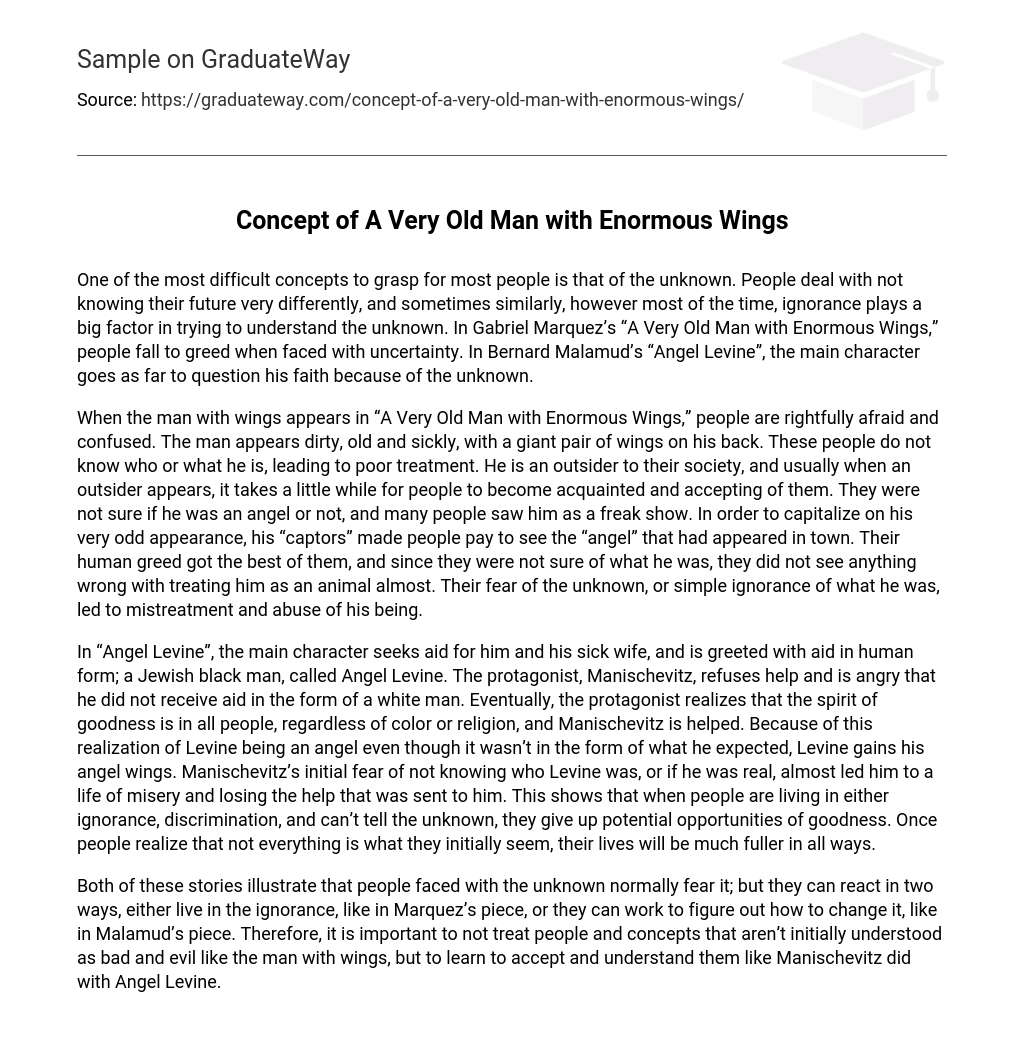One of the most difficult concepts to grasp for most people is that of the unknown. People deal with not knowing their future very differently, and sometimes similarly, however most of the time, ignorance plays a big factor in trying to understand the unknown. In Gabriel Marquez’s “A Very Old Man with Enormous Wings,” people fall to greed when faced with uncertainty. In Bernard Malamud’s “Angel Levine”, the main character goes as far to question his faith because of the unknown.
When the man with wings appears in “A Very Old Man with Enormous Wings,” people are rightfully afraid and confused. The man appears dirty, old and sickly, with a giant pair of wings on his back. These people do not know who or what he is, leading to poor treatment. He is an outsider to their society, and usually when an outsider appears, it takes a little while for people to become acquainted and accepting of them. They were not sure if he was an angel or not, and many people saw him as a freak show. In order to capitalize on his very odd appearance, his “captors” made people pay to see the “angel” that had appeared in town. Their human greed got the best of them, and since they were not sure of what he was, they did not see anything wrong with treating him as an animal almost. Their fear of the unknown, or simple ignorance of what he was, led to mistreatment and abuse of his being.
In “Angel Levine”, the main character seeks aid for him and his sick wife, and is greeted with aid in human form; a Jewish black man, called Angel Levine. The protagonist, Manischevitz, refuses help and is angry that he did not receive aid in the form of a white man. Eventually, the protagonist realizes that the spirit of goodness is in all people, regardless of color or religion, and Manischevitz is helped. Because of this realization of Levine being an angel even though it wasn’t in the form of what he expected, Levine gains his angel wings. Manischevitz’s initial fear of not knowing who Levine was, or if he was real, almost led him to a life of misery and losing the help that was sent to him. This shows that when people are living in either ignorance, discrimination, and can’t tell the unknown, they give up potential opportunities of goodness. Once people realize that not everything is what they initially seem, their lives will be much fuller in all ways.
Both of these stories illustrate that people faced with the unknown normally fear it; but they can react in two ways, either live in the ignorance, like in Marquez’s piece, or they can work to figure out how to change it, like in Malamud’s piece. Therefore, it is important to not treat people and concepts that aren’t initially understood as bad and evil like the man with wings, but to learn to accept and understand them like Manischevitz did with Angel Levine.





